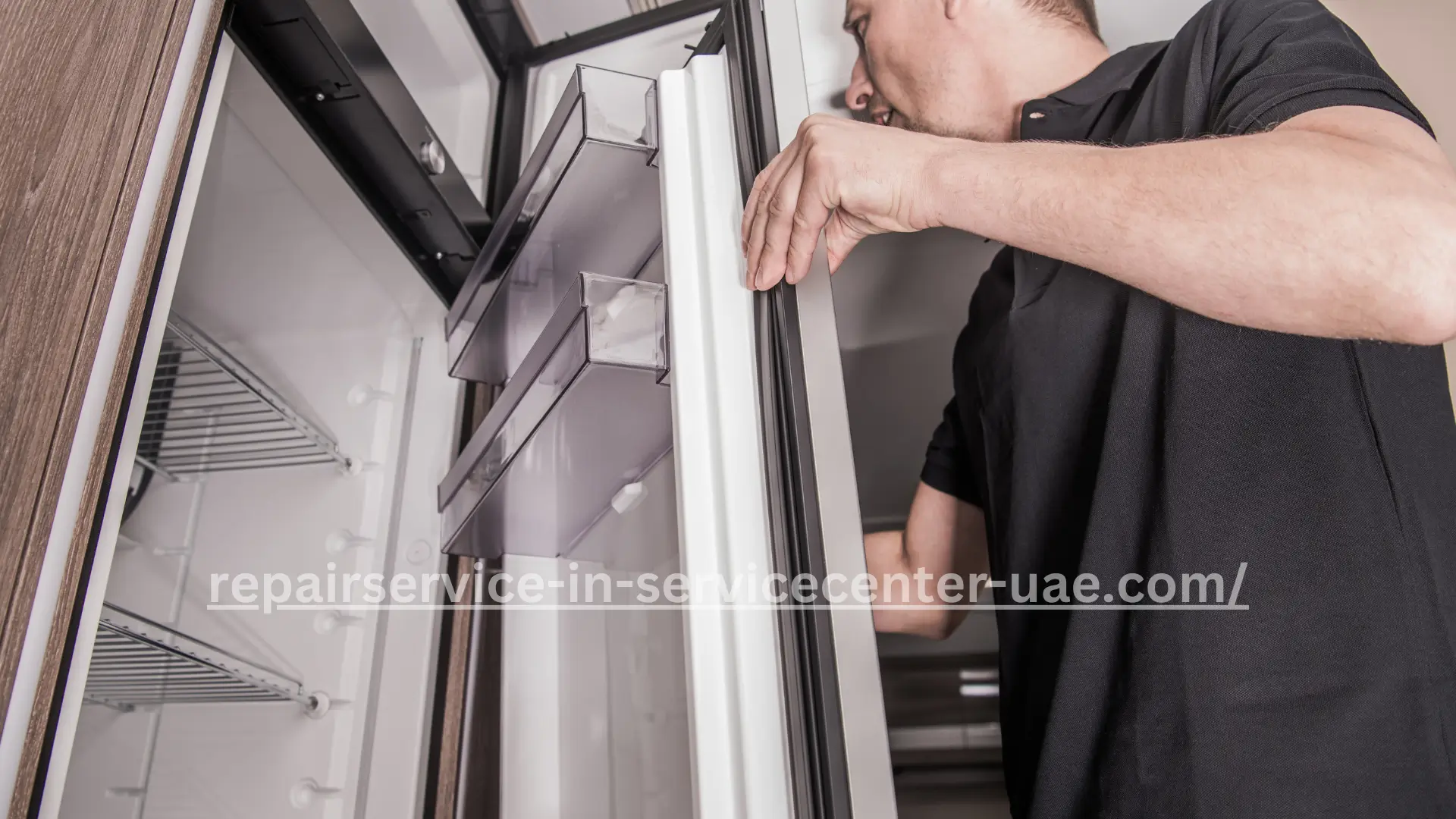Your refrigerator is one of the most essential appliances in your home, keeping your food fresh and safe for consumption. However, like any other appliance, it needs proper care to function efficiently and last as long as possible. In this guide, we’ll explore the best practices to extend the life of your refrigerator, ensuring it runs smoothly for years to come. Whether you’re looking to save money on repairs or delay the need for a replacement, following these tips will help you get the most out of your investment.
Contents
1. Keep Your Refrigerator Clean
Maintaining cleanliness is one of the simplest yet most effective ways to extend the life of your refrigerator. A clean refrigerator not only looks better but also functions more efficiently.
Regular Interior Cleaning:
Cleaning the interior of your refrigerator should be done regularly to increase the life of your refrigerator, ideally once a month. Start by removing all the food and shelves, then wipe down the inside with a mixture of warm water and mild dish soap. Pay special attention to spills and stains, as they can lead to unpleasant odors and even mold growth. Remember to dry everything thoroughly before placing the shelves and food back in.
Exterior Maintenance:
The exterior of your refrigerator, particularly the condenser coils, also needs regular cleaning. Dust and dirt can accumulate on the coils, causing the refrigerator to work harder to maintain the desired temperature and affect Life of Your Refrigerator. This can significantly reduce its lifespan. To clean the coils, unplug the refrigerator, locate the coils (usually at the back or bottom), and use a vacuum cleaner or coil brush to remove the dust. Doing this at least twice a year can help prevent breakdowns and keep your fridge running efficiently.
Clean the Gaskets
The gasket, or the rubber seal around the door, is another area that requires regular attention. If it becomes dirty or worn out, it may not seal properly, allowing cold air to escape and forcing your refrigerator to work harder. Wipe the gasket with a damp cloth to remove any dirt or grime, and check for signs of wear and tear. If the gasket is damaged, it should be replaced promptly to maintain the refrigerator’s efficiency.
By keeping your refrigerator clean, you not only extend Life of Your Refrigerator but also ensure that it operates at peak performance, saving you money on energy bills and repairs.
2. Monitor and Maintain the Temperature
Proper temperature settings are crucial for extending the life of your refrigerator. An incorrect temperature can strain the appliance, leading to increased wear and tear.
Ideal Temperature Settings
For most refrigerators, the ideal temperature setting is around 37-40°F (3-4°C) for the refrigerator compartment and 0°F (-18°C) for the freezer. These settings ensure that your food stays fresh while minimizing the workload on the refrigerator. If the temperature is too low, the refrigerator will work harder, leading to potential issues like frost buildup and increased energy consumption.
Use a Thermometer
Even if your refrigerator has a built-in thermometer, it’s a good idea to use a separate appliance thermometer to double-check the temperature. Place it in different areas of the refrigerator to ensure that the temperature is consistent throughout and increase Life of Your Refrigerator. If you notice any discrepancies, it might indicate a problem with the refrigerator’s cooling system, and you should consult a professional for further inspection.
Avoid Overloading
An overloaded refrigerator can block the air vents, preventing proper air circulation. This can lead to uneven cooling and force the refrigerator to work harder to maintain the desired temperature which affects Life of Your Refrigerator. On the other hand, an underloaded refrigerator can also cause issues, as there won’t be enough items inside to help maintain the cold temperature. Aim for a balanced load that allows for good air circulation while keeping the fridge at an optimal temperature.
Check the Door Seals
As mentioned earlier, the door seals play a significant role in maintaining the temperature inside the refrigerator. If the seals are loose or damaged, cold air will escape, causing the refrigerator to overwork that affects the Life of Your Refrigerator. Regularly inspect the seals for any signs of wear, and replace them if necessary to prevent unnecessary strain on the appliance.
Monitoring and maintaining the right temperature in your refrigerator is key to extending its life and ensuring it operates efficiently. By following these tips, you can avoid unnecessary repairs and keep your refrigerator running smoothly.
3. Organize Your Refrigerator for Optimal Performance
How you organize your refrigerator can have a significant impact on its performance and longevity. Proper organization not only makes it easier to find what you need but also helps the refrigerator operate more efficiently.
Proper Food Placement
Different areas of the refrigerator have varying temperatures, so it’s essential to store food in the right place to ensure freshness and prevent spoilage. For example, the door is the warmest part of the refrigerator, so it’s best for items that are less perishable, like condiments and juices. The top shelves are slightly warmer, making them ideal for ready-to-eat foods, while the lower shelves are the coldest and should be used for raw meat and dairy products.
Avoid Overcrowding
As mentioned earlier, overcrowding can block air vents and hinder proper air circulation, leading to uneven cooling. To prevent this, avoid cramming too many items into the refrigerator. Instead, leave some space between items to allow air to circulate freely. This will help the refrigerator maintain a consistent temperature, reducing the strain on the cooling system and extending the life of your refrigerator.
Rotate Your Stock
To keep your refrigerator organized and prevent food waste, practice the “first in, first out” method. This means placing newer items behind older ones, so you use up older food first. Regularly checking expiration dates and rotating your stock will prevent food from spoiling and reduce the risk of spills or leaks that could lead to mold and odors.
Use Clear Containers
Storing food in clear, airtight containers not only keeps your refrigerator organized but also helps maintain the freshness of your food. Clear containers make it easy to see what you have, reducing the likelihood of forgetting items until they spoil. Airtight containers also prevent odors from spreading and reduce the risk of spills, which can be a hassle to clean.
By organizing your refrigerator effectively increase Life of Your Refrigerator, you can ensure that it operates efficiently and lasts longer. Proper food placement, avoiding overcrowding, and regular rotation of items all contribute to a refrigerator that works optimally and saves you money in the long run.
4. Regularly Inspect and Maintain Components
To extend the life of your refrigerator, it’s essential to regularly inspect and maintain its various components. Neglecting these tasks can lead to breakdowns and costly repairs.
Check the Door Seals
As discussed earlier, door seals are crucial for maintaining the refrigerator’s efficiency. Inspect them regularly for cracks or wear and replace them if necessary. A simple test to check the seals is to close the door on a piece of paper. If the paper slides out easily, the seal may need to be replaced.
Inspect the Condenser Coils
Condenser coils play a vital role in the cooling process. When they get dirty, they can’t release heat efficiently, causing the refrigerator to work harder. Cleaning the coils twice a year, as mentioned earlier, will help prevent this issue and extend the life of your refrigerator.
Check the Water Filter
If your refrigerator has a water dispenser or ice maker, it likely has a water filter that needs regular replacement. A clogged or dirty filter can affect the taste of your water and ice and may even cause the dispenser to stop working. Most manufacturers recommend replacing the water filter every six months, but you should check your refrigerator’s manual for specific guidelines.
Test the Thermostat
The thermostat controls the temperature of your refrigerator, so it’s important to ensure it’s working correctly. If you notice that your refrigerator isn’t cooling properly, the thermostat might be malfunctioning. To test it, set the thermostat to a lower temperature and see if the refrigerator responds by cooling down. If it doesn’t, you may need to replace the thermostat or call a professional for repairs.
Inspect the Defrost Drain
The defrost drain removes excess moisture from the refrigerator. Over time, it can become clogged with debris or ice, leading to water leakage inside the refrigerator. To prevent this, periodically check the defrost drain and clear any blockages with warm water and a small brush.
Regularly inspecting and maintaining these components will help you catch potential issues early and prevent major breakdowns. This proactive approach not only extends the life of your refrigerator but also saves you money on repairs and energy bills.
5. Address Problems Promptly
Even with regular maintenance, issues can still arise. The key to extending the life of your refrigerator is addressing these problems as soon as they occur.
Listen for Unusual Noises
Your refrigerator should operate quietly most of the time. If you start hearing unusual noises, such as rattling, buzzing, or clicking, it could indicate a problem with the compressor, fan, or other components. Ignoring these noises can lead to more significant issues, so it’s important to investigate and address them promptly.
Fix Leaks Immediately
Water leaks can damage both your refrigerator and your kitchen floor. If you notice water pooling under or inside the refrigerator, inspect the water line, defrost drain, and door seals for leaks. Fixing these issues right away can prevent further damage and extend the life of your refrigerator.
Don’t Ignore Temperature Fluctuations
If you notice that your refrigerator isn’t maintaining a consistent temperature, it could be a sign of a malfunctioning thermostat, condenser coils, or door seals. Addressing these issues promptly will prevent food spoilage and reduce the strain on your refrigerator.
Call a Professional When Needed
Some refrigerator issues require professional attention. If you’re unsure how to fix a problem or if it’s beyond your DIY skills, don’t hesitate to call a professional technician. Attempting to repair complex issues on your own can sometimes do more harm than good, leading to more costly repairs or even the need for a replacement.
By addressing problems promptly, you can prevent small issues from turning into major repairs and extend the life of your refrigerator.
Conclusion
Extending the life of your refrigerator doesn’t have to be complicated. By following these simple steps—keeping it clean, maintaining the right temperature, organizing it effectively, inspecting components regularly, and addressing problems promptly—you can ensure that your refrigerator lasts for many years. Not only will these practices save you money on repairs and replacements, but they will also help your Life of Your Refrigerator more efficiently, reducing your energy bills.
If you ever need professional assistance, feel free to call us at +971545356777 for expert refrigerator maintenance and repair services.



